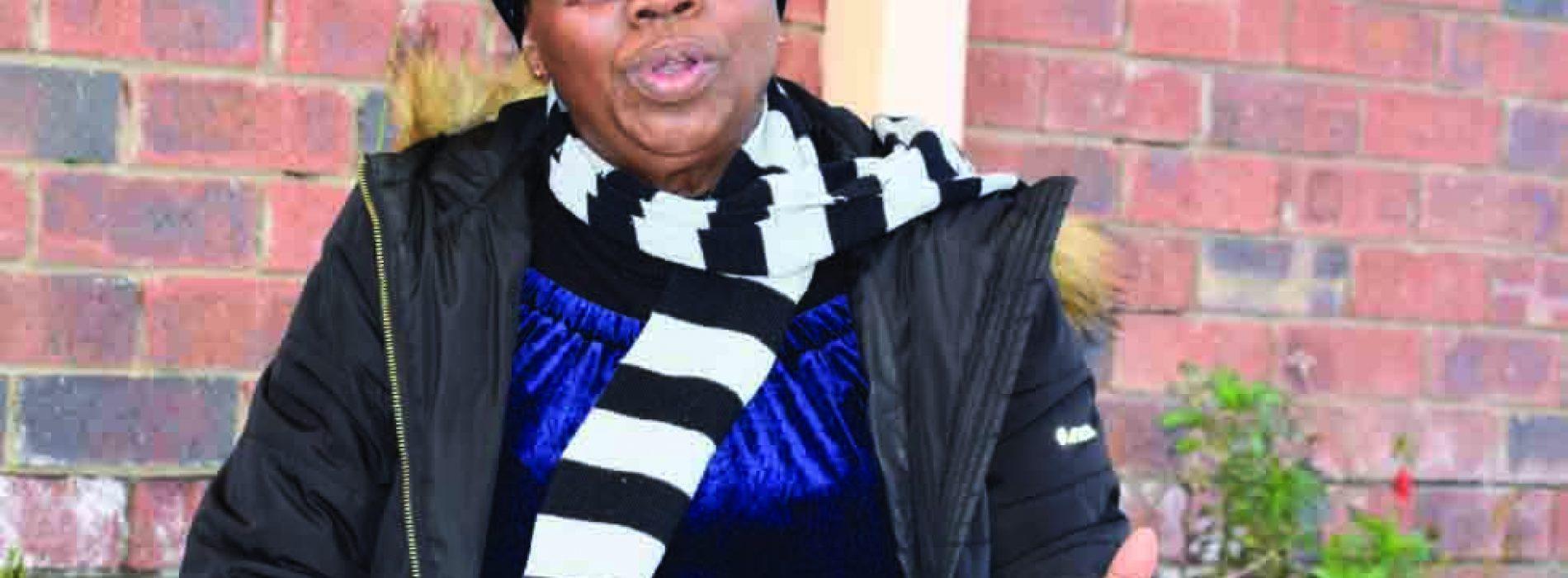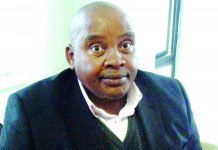Africa-Press – Lesotho. IN Lesotho mental health can be a lonely journey. Family members hardly understand mental health issues, often blaming the afflicted, witchcraft or some bad omen.
The patients are either shunned or left to roam the streets while enduring their misery. Mental health facilities are often understaffed because there are not enough qualified people.
The few professionals that are there are overworked. Though she retired as an occupational therapist, ’Masebili Lehema hardly has time to rest. A shortage of mental health professionals means she is regularly called back to work.
“The gap is already there. I haven’t rested yet as I still go to assist, especially on Wednesdays,” said Lehema, who used to work at Lesotho’s only mental hospital, Mohlomi.
“The hospital has no qualified therapist,” said the 60-year old, intimating that the position she left at the beginning of this winter is still vacant. The situation is no better across the country.
Her retirement has left the country with a mere five occupational therapists: three at Queen ’Mamohato Memorial Hospital, one at Motebang Hospital in Leribe and another in private practice in Maseru.
There is only one doctor registered as a psychiatrist in the country, working at the Maseru Private Hospital. Another who was based at Mohlomi has since left.
The dire shortage of skills means people like Lehema have little choice but to continue working even after their time is up. She however says she will not extend a helping hand for a long time.
“I still feel I can render my services, but not for long. Very soon I will need to rest,” she said.
Lehema said serving at Mohlomi requires steel because you are often on your own. “I started working as a lone therapist after those that I found at the hospital retired.
It was not easy,” Lehema said. She said two more therapists were deployed but one left for studies abroad and didn’t return while another was deployed in Leribe.
“I have been working alone since 2013. It was tough but my dedication kept me going. ” However, she said she trained some nurses who came after her in the department.
“But some were reluctant as they thought I was the only one fully qualified for the job,” she said, noting that lack of training was another huge challenge.
“Being qualified from school doesn’t mean people shouldn’t continue learning.
” She said they used to get training in South Africa but the arrangement ended way back in 2017.
Another problem is that Mohlomi doesn’t have a department for children. Therapy, she said, is vital for people with mental health problems to recover.
“In most of the cases, people with cognitive problems, are not functional.
” Lehema said she used to categorise her patients into groups – cognitive, emotional, motivation and interpersonal relationships.
“Therapy is a broad issue narrowed according to one’s need,” she says, adding: “Grouping them at times would help them learn from one another.
” Growing up with her late sibling who was “functioning slowly” influenced Lehema to opt for a profession in the health sector.
“My mother was my heroine; the way she took care of her was amazing and it inspired me,” she said.
“All the things I did, including in my profession, were motivated by my mother.
”
“How she nurtured my sister helped a lot and she regained life and I even asked to take care of her after becoming a nurse.
Unfortunately, she died after her recovery,” Lehema told thepost, tears rolling down her cheeks. “Taking care of her made me love therapy even more. ”
Lehema aspired to be a doctor but her high school results couldn’t allow her to pursue the profession so she settled for nursing even though she had passed commercial subjects with flying colours.
“I am content with my choice because it makes me happy,” she said.
“Although it is challenging, I love it because it helps people generally – from parents, teachers to children.
” She joined Mohlomi in 1986 as a General Nurse Midwife without any mental health qualification. Around 1992 she was part of a group that joined the National Health Training College (NHTC) to study Psychiatric Mental Health in Nursing.
“After specialising in mental health, I saw things differently and loved to work at the occupational therapy department.
She describes occupational therapy as helping patients to independently function daily regardless of how sick they may be. “They should be encouraged to function, to work, not for things to be done for them.
” Lehema said she loved how her predecessors at the hospital’s mental health department worked and she decided to join them.
“It was a bit challenging until I was allowed to start teaching patients about mental health,” she said.
“It was an exciting department although I wasn’t qualified yet. They read, worked and played games,” said Lehema, noting that being artistic has helped her engage with patients.
She said some patients used to dodge sessions as they said she was tiring them. “I thought they were lazy until I read more about their conditions and learnt that their way of functioning differed from the rest of us.
I realised I had to further my studies. ” In 2000 she joined a five-year programme at the University of Free State, studying Occupational Therapy. “I loved my job even more when I returned home.
With all the skills I had obtained, I looked at patients’ functionality to be able to assist them accordingly. ” What fascinated her most was helping teenagers to find themselves after being subjected to peer pressure or resorting to drugs.
“Perception is vital at that stage,” she said, highlighting that people shouldn’t get into mental health work simply because of money or the need for a job.
“Mental health service doesn’t need people who just go there because there is a shortage of jobs. Some of us went there because we were passionate. Mohlomi needs passionate people with love, sympathy and understanding. ”
She said deploying someone who does not have compassion and passion “does not help the patients at all”. She said the culture of people going to the health centre expecting medication only “is a bit problematic”.
“Some people are reluctant to do something different as they usually expect healing from medicine only.
But some illnesses do not require that…they need functionality and experiences to help them. ” She said there was a dire lack of many skills at Mohlomi hospital.
“The hospital is desperate for a therapist, forensic nursing and child psychiatrist because it has none,” she said, adding that it also does not have a psychiatrist.
She said the addition of psychologists was helpful “but five is still not enough”. One of the five social workers recently retired. The forensic nurse and a child psychiatrist retired last year.
Overcrowding caused by a lack of specialists and the absence of a psychiatrist is another problem at the hospital. Lehema said district mental health units, called Mohlominyane, also need overhauling.
Lehema said she continued with her professional development even after completing her degree. “I did it online and continued reading to stay up to date.
” She said a strategic plan also helped her “have direction”.
“I even went as far as empowering people in other districts but was hampered by financial constraints because resources were scarce.
”
“I am proud that I covered the district of Maseru to help nurses. It was very exciting. ” She said she had her proud moments in advocacy mostly.
She said mental health would not be prevalent if the country adopted a robust advocacy campaign. “If people understand it, I believe they would seek help sooner rather than later.
Mental health is not taken as a priority and the situation is not motivating. ” “My advocacy was very strong and I managed to give patients activities.
Taking them out of therapy, before being discharged I would conduct a seminar for them to support each other,” she said. “I gave them motivational assignments and seeing it not being punitive, ended up healing them.
”
“I used to empower them with life skills,” said Lehema. Lehema is proud of the impact she had on the parents of children that she helped.
“They still call me just to appreciate my job and even encourage me to keep working. But I am tired now. ” Over the years there has been a shift in public perception about Mohlomi.
“In the past, the hospital was referred to as a ‘madhouse’ but the good thing is people are no longer afraid to check into the facility when they feel they are mentally ill.
”
“The youth, young adults and recovered patients are helping raise awareness about depression and this, in a way, has helped a lot of people to understand. We don’t reject self-referrals although we wish they can first start at a general clinic.”
For More News And Analysis About Lesotho Follow Africa-Press






